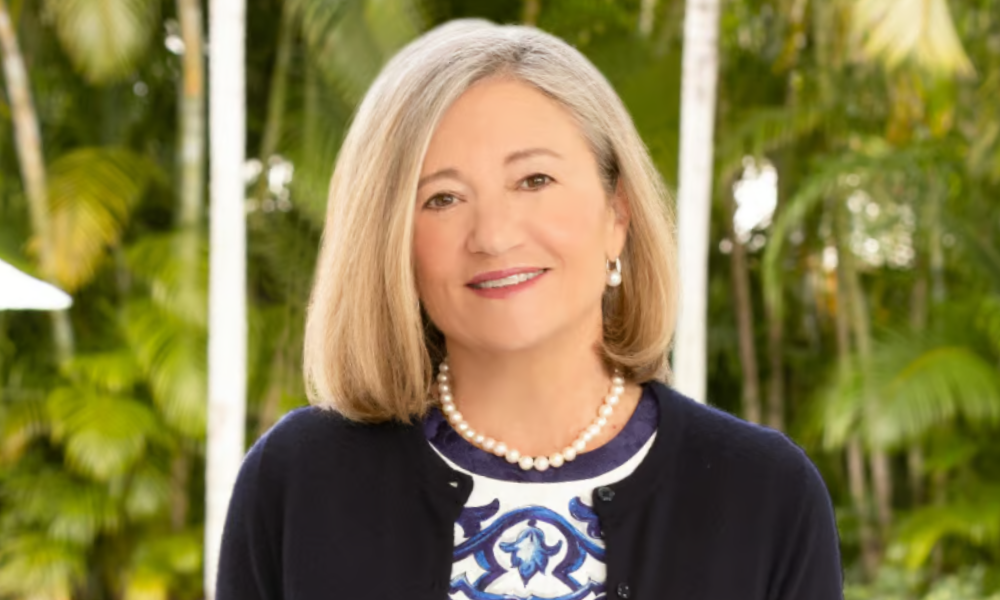The new American dream might just be a lease that never ends

The housing market isn't stuck because of interest rates; it's collapsing under the weight of financial inaccessibility. With the cost of moving outpacing people's ability to adapt, waiting for a better rate means little when homeownership is already out of reach.
Insurance premiums in disaster-prone states like Florida have soared. Tariffs drive up material costs, discouraging builders. Meanwhile, limited housing supply pushes prices higher, making even necessary life transitions – marriage, divorce, downsizing – financially fraught.
After 43 years in the mortgage business, Melissa Cohn (pictured), regional vice president at William Raveis Mortgage, has seen the industry through cycles of panic, prosperity and policy shifts. She started in 1982, when rates hovered around 16%, and launched Manhattan Mortgage from her dining room. So, while today's 6-7% environment is causing stress, she sees it through a longer lens.
"People need to move for life cycle reasons. You get married. You have kids. You get divorced. You die," Cohn said. "And for economic reasons, too – job loss, retirement, rising taxes and insurance. You can no longer afford your home."
She believes tariffs may eventually push rates down by weakening the broader economy. But even if rates drop, Cohn is clear: pandemic-era lows are gone. "We need to acclimate to a different rate environment. We've done it many times," she said.
What's holding the market back now is hesitation. "It's like when Lehman collapsed or COVID hit. People want to wait and see," she said. "That's probably the worst kind of market to be in."
Rates aren’t to blame, affordability is
Even as headlines obsess over the Fed, Cohn says what’s choking the housing market is affordability. That includes rates, high home prices, taxes and insurance costs.
“The affordability factor relates to rates, it relates to the high prices, it relates to the high cost of real estate taxes, it relates, in a big way, to the high cost of homeowners insurance,” Cohn said. “So, we should see better regulation regarding insurance to try to keep the cost of insurance affordable.”
Insurance has become a make-or-break factor in Florida, where she now leads operations for William Raveis Mortgage. “We have Citizens Insurance, which will insure 70% of the state right now, so that there is access to insurance,” she said.
Supply constraints are also worsening affordability. Builders are being pushed out by land prices and material costs, especially with tariffs adding pressure.
“We need people to build more homes,” Cohn said. “But the cost of the land is so expensive, and now with tariffs, the cost of materials will grow again, making it not profitable to build.”
Good lending means realism, not risk
Cohn focuses on what she can control: educating clients. She works to help borrowers understand their actual purchasing power and adjust expectations accordingly.
"I work with people to try to get them to understand what they actually qualify for," Cohn said. "Yes, I would like that five-bedroom house, but maybe I can settle for the three bedrooms and a den."
She's also clear on what responsible originators must avoid: unsustainable debt.
"The last thing in the world an originator wants to do is to put someone into a home they can't afford and have them go into foreclosure," Cohn said. "It also impacts us as originators, because basically, banks keep a scorecard on the loans that we originate that have gone bad."
She supports innovation, but only when it reflects financial reality. Products like bank statement loans and DSCR programs meet that threshold. What doesn't help is a return to no-doc lending.
"I think the innovation we've seen with the non-QM products, bank statement products, the DSCR, [and] P&L-based programs. It's all based on reality," Cohn said. "All of the no-doc stuff that people wish we would return to was not based on reality."
She's just as critical of long-term gimmicks like 50- or 60-year mortgages. "Do we want 50- or 60-year mortgages to reduce the monthly payment?" Cohn said. "Do people want life sentences on their mortgage?"
Instead, she'd like to see innovation target bloated closing costs. "The biggest innovation we should see is finding a way to streamline closing costs," she said. "There's no reason people should pay $120 for a credit report."
Tech isn’t a fix-all
Cohn is wary of automation that sacrifices security or personal agency. In particular, she pushes back against tech that requires access to sensitive financial data.
"We've also tried programs where we can get your client's bank account information for them, but they have to give us a password," Cohn said. "I would never give anyone my password to one of my bank accounts."
She said the industry must remain vigilant against fraud and flexible enough to meet clients where they are.
"Look at all this wire and bank fraud that's going on, with people stealing account numbers," Cohn said. "Sometimes, if it's a little bit old-fashioned, it's a good thing."
Optionality, not standardization, is what borrowers want – and what the industry needs to preserve. "Some banks are a little bit more relaxed in documentation," Cohn said. "The rate may be slightly higher, but people would rather pay that and not give their life story."
And she doesn't want to see mortgage lending flattened into a one-size-fits-all funnel. "We don't want to become the Amazon, where all products go through the same place," Cohn said. "We need the differentiation."



